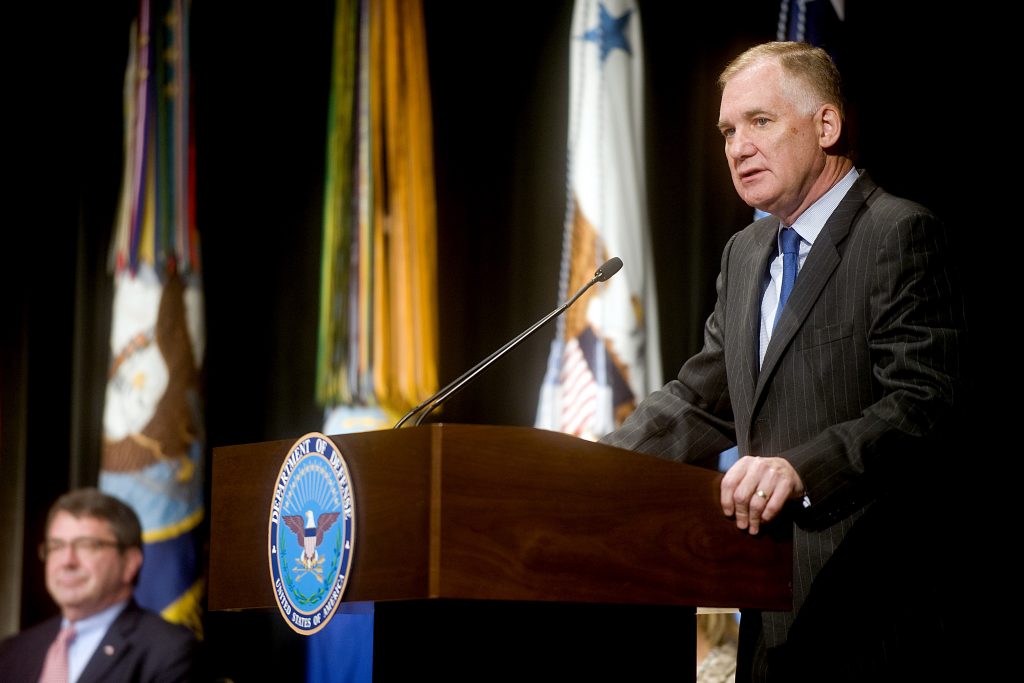
From David Ignatius, the Washington Post: With little fanfare, the Pentagon is putting the finishing touches on a new strategy that will treat cyberspace as a domain of potential warfare — and apply instant "active defense" to counterattacks that, in theory, could shut down the nation’s transportation and commerce.
Even though it deals with a distinctly 21st-century problem, the strategy has echoes of the Cold War: America’s closest allies would be drawn into an early-warning network of collective cybersecurity; private industry would be mobilized in a kind of civil defense against attackers; and military commanders would be given authority to respond automatically to electronic invaders. …
William J. Lynn III, the deputy secretary of defense, explained the new approach, known as "Cyberstrategy 3.0" within the Pentagon, in an interview this week and in an article that appears in the new issue of Foreign Affairs. The formal policy should be completed by December, he said; meanwhile, the Pentagon’s new "Cyber Command" will have responsibility for "active defense" starting Oct. 1. …
The Pentagon is already recruiting allies on cybersecurity. Lynn has shared ideas with America’s longtime partners on signals intelligence — Britain, Canada and Australia. He plans to meet with a wider circle of NATO allies next month. One topic will be surveillance against cyberattacks — a sort of Internet version of the old "DEW Line" radar network or the undersea listening devices that monitored Soviet submarines. (photo: U.S. Department of Defense) (via atlantic-community.org)
Image: dod%208%2026%2010%20William%20J.%20Lynn.jpg
